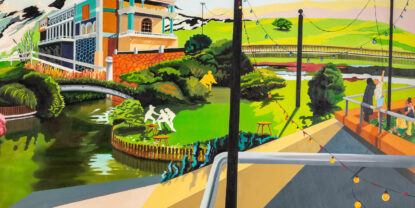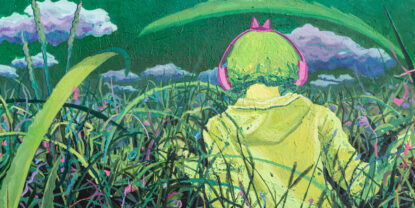Two-Person Show: Leila Eskandari & Hanie Farhadi Nik
Group Exhibition
July 29 — August 06, 2022
Searching for order in any place, it is quite probable for one to find eternal chaos, which can always overcome order, for it is more organizable. The two-person show presenting Leila Eskandari and Hanie Farhadi Nik revolves around order and chaos in a cycle with no beginning and end. In Leila’s works, the main story is put aside while sub-narratives are highlighted, whereas Hanie’s paintings depict situations in which human being becomes one with nature. It is not obvious where each one stands: the moment in which chaos reaches order or when stillness is disturbed. The contrast between order and chaos amounts to no contradiction; chaos is the absence of order. Both artists, whose works were featured in Mohsen Gallery’s “Episode” show series, use the agitation and distress of modern life as their raw material to make a new, personal world.
In her “This Account Is not the Whole Truth” series, Leila Eskandari reinterprets the story of Khosrow and Shirin with a personalized perspective and creation of ludic situations, so as to depict the “existential” possibilities of subsidiary characters. As she creates new stories in her mind, the audience are also invited to this commotion to write their own narratives and create order out of the onslaught of chaos.
Hanie Farhadi Nik’s self-portraits, represented in interrelated pairs, depict small occurrences that lead to bigger events. She makes use of an imagination that is based on observation and sensual experience; seizing and dominating nature based on the experience of constant presence in it. By playing with colors and how the figures are situated, Hanie seeks to become one with nature, manipulating and appropriating it through this process.
Leila and Hanie’s works have spatial characteristics, yet they seem timeless. They go from tumult to healing and escape to a fantastical world from the formidable nightmare of reality.

